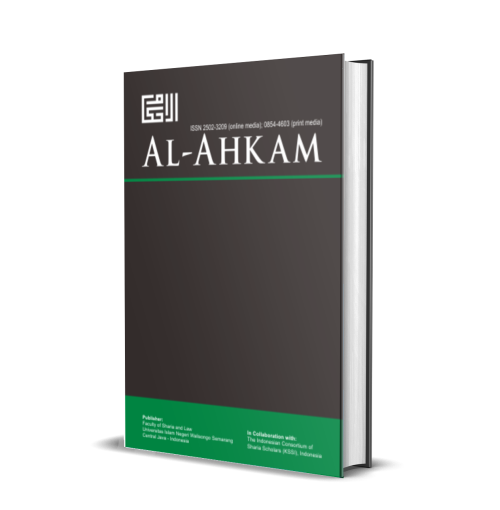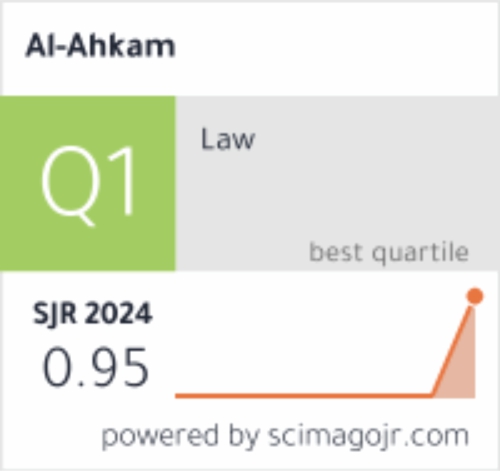IMPLEMENTASI MAQĀṢID AL-SHARĪ'AH DALAM HUKUM EKONOMI ISLAM
DOI:
https://doi.org/10.21580/ahkam.2013.23.2.20Abstract
The objective revelation of Islamic law is to create public interest (maṣlaḥat), both individually and collectively. The public interest that mentioned in Islamic law is the true goodness, not the pseudo benefit which influenced human desires. The Public interest here includes physical and spiritual. The public interest that intended by Islamic law is the goodness in this life and in the hereafter, not solely in the world live. maslahah in the Shariah perspective is based on five principles called al-mabādi'al-khamsah or al-uṣūl alkhamsah namely: keeping religion (hifẓ al-dīn), keeping the soul (hifẓ al-nafs), keeping mind (hifẓ al-‘aql), keeping property (hifẓ al-māl), and keeping descent (hifẓ al-nasl). Maqāṣid al-sharī’ah implementation of some economic problems is to answer the reality of modern society to face the challenges of basic needs such as clothing, food, shelter, health, education, employment, sanitation, energy, transport and information. Crucial needs of modern man is the spiritual and ethical, because modern society only measure the welfare just from the outer side only, that is to meet the needs according to the principle of utility and pragmatismDownloads
Downloads
Published
How to Cite
Issue
Section
License
By submitting an article to the journal, the author(s) agree to transfer the published article's copyright to the journal, which will act as the publisher. This means the journal will have the right to publish the article in various forms, including reprints. The journal will maintain the publishing rights to the published articles.
In line with the license, authors and third parties (readers, researchers, and others) are allowed to share and adapt the material. In addition, the material must be given appropriate credit, provided with a link to the license, and indicated if changes were made. If authors remix, transform or build upon the material, authors must distribute their contributions under the same license as the original.




